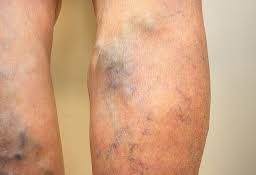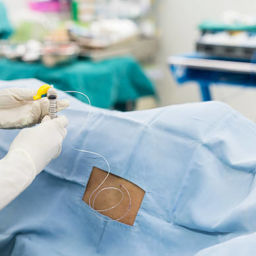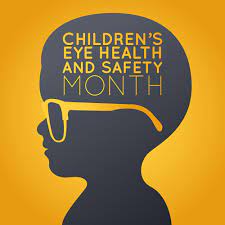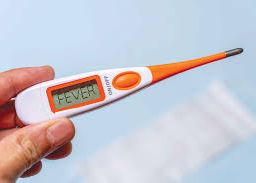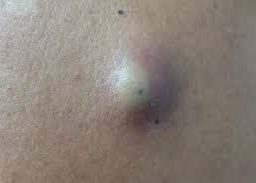
Skin Care Myths Debunked: Sunscreen, Moisturizer, & More
In the realm of beauty and wellness, understanding skincare is paramount. Dive into this comprehensive guide where we debunk prevalent myths and provide you with evidence-based insights to ensure you’re giving your skin the care it truly deserves.

Our skin is the body’s largest organ and plays a crucial role in protecting us from the outside world. Given its importance, it’s no wonder that there are many myths and misconceptions surrounding skincare and health. In this post, we will debunk some of the most common myths about skin and provide you with accurate information to help you better care for your skin.
Myth 1: You Only Need Sunscreen on Sunny Days
Fact: Sunscreen should be part of your daily skin care routine, regardless of the weather. UV rays from the sun can penetrate clouds and cause skin damage even on overcast days. Regular use of sunscreen helps protect your skin from premature aging, sunburn, and the risk of skin cancer. Sunscreen should be part of your daily skincare routine, regardless of the weather. Choose a broad-spectrum sunscreen with at least SPF 30 and apply it generously.
Myth 2: Oily Skin Doesn’t Need Moisturizer
Fact: All skin types benefit from moisturization. Skipping moisturizer can actually make oily skin worse by causing it to produce more oil to compensate for dryness. Opt for a lightweight, oil-free moisturizer designed for oily skin to maintain a healthy skin barrier.
Myth 3: Popping Pimples Makes Them Heal Faster
Fact: Popping pimples can lead to scarring, infections, and make acne worse. It’s best to leave pimples alone and allow them to heal naturally. If you have persistent acne, consult a dermatologist for proper treatment.
Myth 4: You Can “Shrink” Pores
Fact: You can’t change the size of your pores permanently. However, you can minimize their appearance by keeping your skin clean, using products with salicylic acid or retinoids, and practicing good skincare habits.
Myth 5: The More Expensive the Product, the Better It Is for Your Skin
Fact: Price doesn’t always correlate with product quality or effectiveness. Some affordable products are just as effective as high-end ones. What’s more important is choosing products that are suitable for your skin-type and concerns. The effectiveness of a skincare product depends on its ingredients and how well they address your specific concerns. There are many affordable products with high-quality ingredients that can deliver excellent results.

Myth 6: Natural Ingredients Are Always Safe
Fact: Natural ingredients can be beneficial, but they aren’t always safe for all. Always patch-test new products and consult a dermatologist if you have concerns. Allergies, sensitivities, and adverse reactions can occur with natural ingredients, just as they can with synthetic ones. Always perform a patch test when trying a new product and research the ingredients to ensure they’re suitable for your body and consult with a dermatologist if you have concerns.
Myth 7: You Don’t Need Skincare in Your 20s
Fact: Good skincare habits should start early. Prevention is key to maintaining healthy, youthful-looking skin as you age. Sun protection, a gentle cleanser, and moisturizer should be part of your routine from your 20s and beyond.
Myth 8: Skincare Products Can Make You Look Younger Overnight
Fact: Realistic expectations are important in skincare. Most products take time to show results, and there’s no miracle solution that will instantly erase signs of aging. Consistency and patience are key.
Myth #9: You Should Always Wash Your Face with Hot Water
Fact: While a warm water cleanse can be soothing, hot water can actually be harsh on your skin. It can strip away natural oils and lead to dryness and irritation. It’s best to use lukewarm water for washing your face to maintain your skin’s natural moisture balance.
Myth #10: Tanning Booths Are Safer Than Sun Exposure
Fact: Tanning booths are not a safe alternative to natural sun exposure. Both tanning booths and natural sunlight emit harmful ultraviolet (UV) rays that can damage your skin and increase your risk of cancer and premature aging. Opt for a high-quality sunscreen and protective clothing when spending time outdoors. It’s safer and more effective to obtain Vitamin D from dietary sources or supplements.
Myth #11: Acne is Only a Teenage Problem
Fact: Acne is not limited to teenagers; it can affect people of all ages. Adult acne is a common issue, and its causes can range from hormonal changes to stress and skincare product choices. Consult with a dermatologist to determine the best treatment for your acne.
Myth #12: You Should Exfoliate Your Skin Every Day
Fact: Exfoliation is essential for removing dead skin cells and promoting cell turnover, but over-exfoliating can damage your skin’s protective barrier. Limit exfoliation to 2-3 times per week and choose products appropriate for your skin type.
Myth #13: You Only Need Skincare Products When You Have Skin Problems
Fact: Skincare isn’t just about addressing issues when they arise; it’s also about preventing them. A consistent skincare routine can help maintain healthy skin and reduce the likelihood of future problems.
Myth 14: Skin Should Feel Tight to Be Clean
Fact: If your skin feels tight after cleansing, it may be a sign that your cleanser is too harsh and stripping your skin of natural oils. Opt for a gentler cleanser that leaves you feeling refreshed but not tight.

Myth 15: Everyone Needs the Same Skincare Routine
Fact: Skincare should be tailored to your unique skin type, concerns, and goals. What works for one person may not work for another. Consulting with a dermatologist can help you create a personalized skincare plan.
Understanding the facts and dispelling common myths about skincare is essential for achieving healthy, radiant skin. Remember that consistency, patience, and the right products for your skin type are key to a successful skincare routine. Always seek professional advice when in doubt and prioritize the long-term health of your body over quick fixes or trends.
Disclaimer: The information provided in this content is for general informational purposes only. It is not intended as medical or healthcare advice, diagnosis, or treatment. Always seek the advice of a qualified healthcare professional with any questions you may have regarding a medical condition or healthcare decisions.



